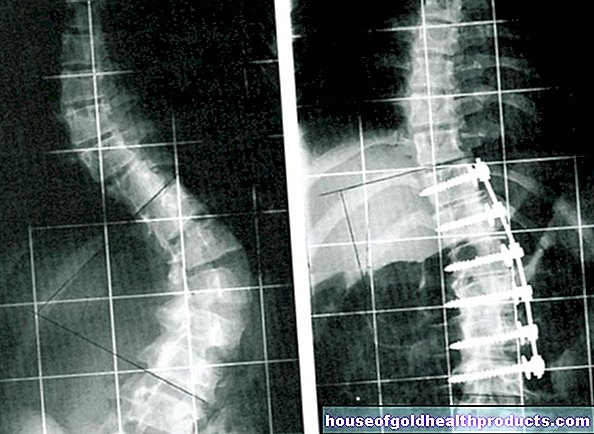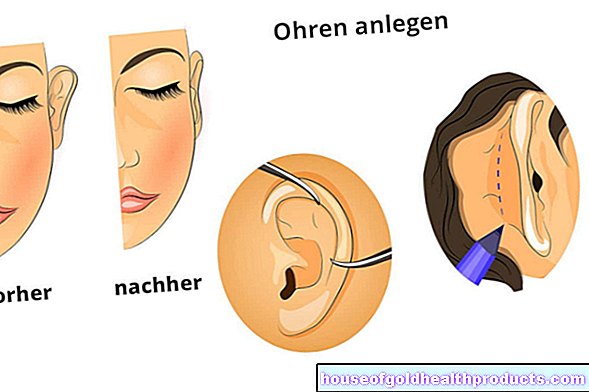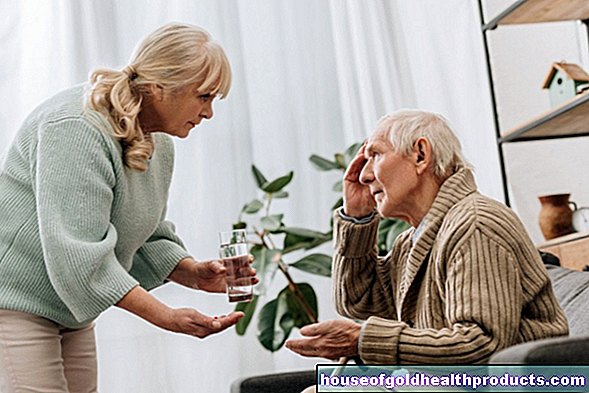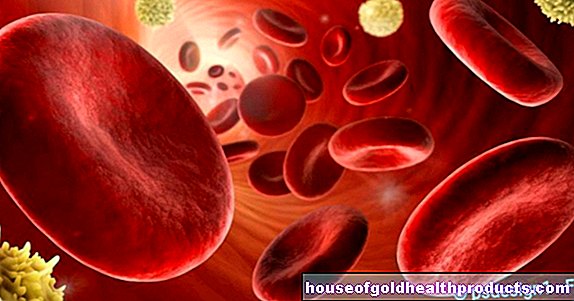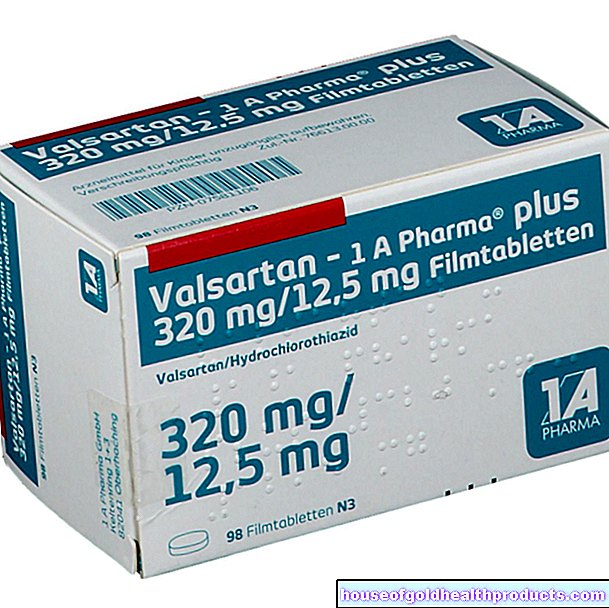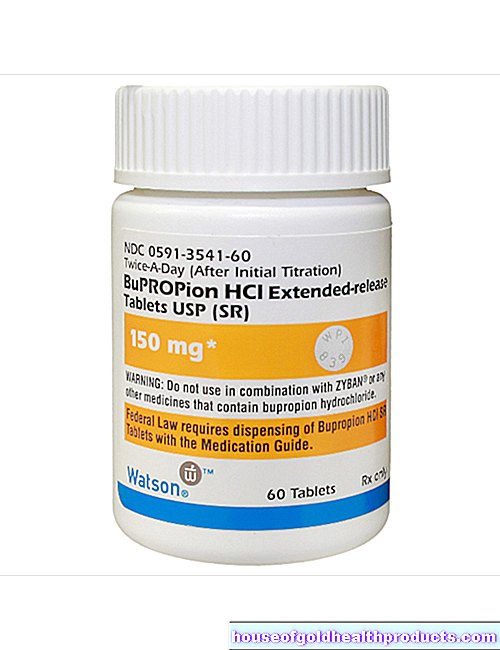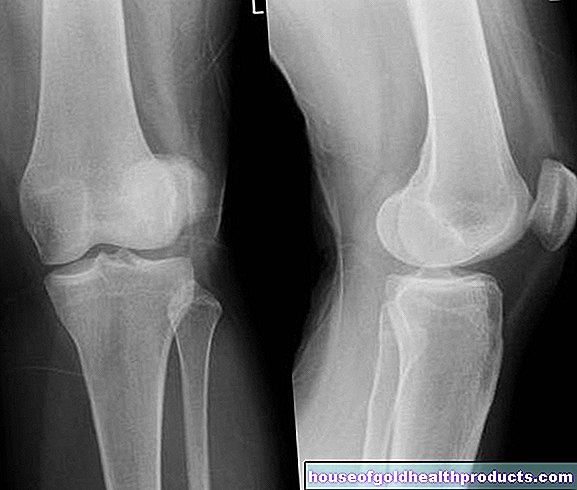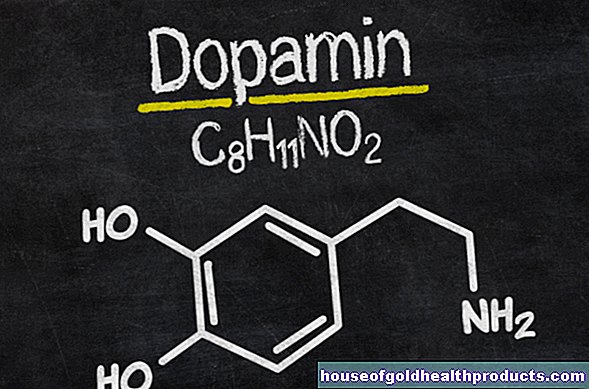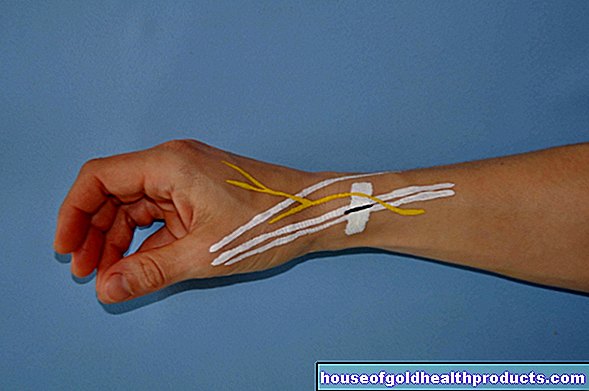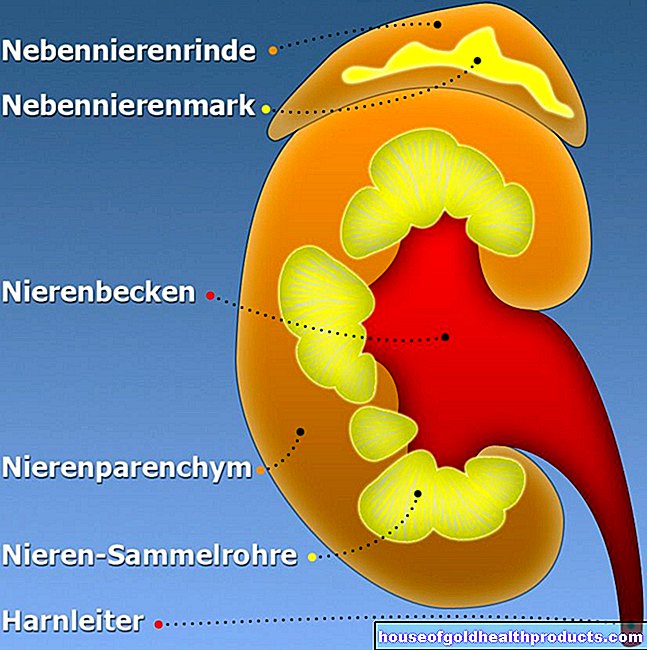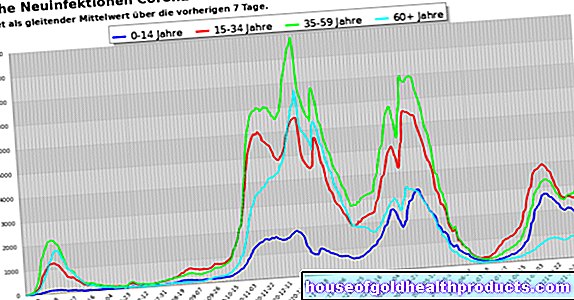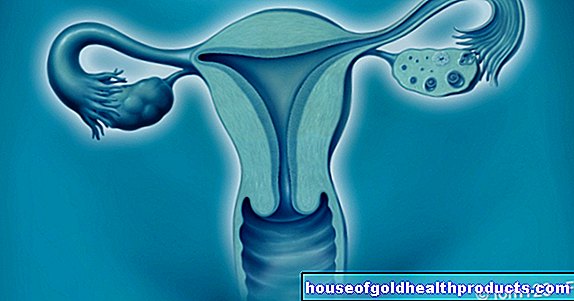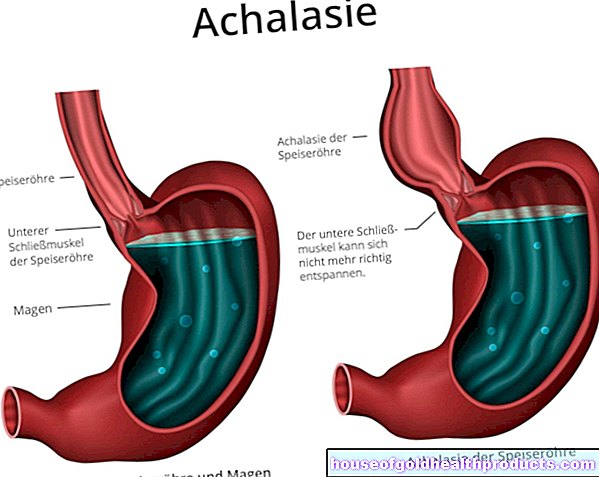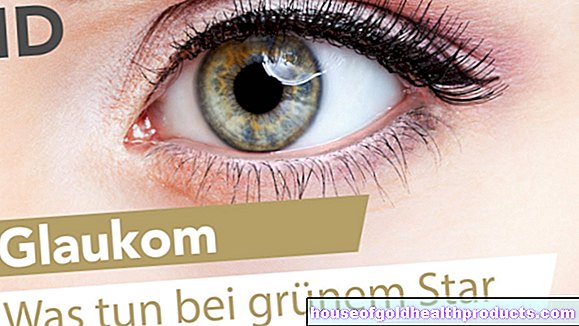Placebo works for Parkinson's disease
All content is checked by medical journalists.The so-called placebo effect is far more than pure imagination. With the help of sham drugs, even the neurological disorders of Parkinson's patients can be alleviated - for example, tremors and stiffness. But there are also differences between placebo and placebo: In allegedly more expensive pills, the placebo effect is even stronger, researchers found.
Scientists at the University of Cincinnati only injected twelve Parkinson's patients with a saline solution. They told one half of the study participants that it was a very expensive drug that costs $ 1,500. The other half received information that their drug was available for about $ 100.
"Expensive" dummy medication works better
The result amazed the team led by Dr. Alberto Espay: The sham drugs not only improved motor skills in both groups. In fact, the sham drug, advertised as very expensive, was more than twice as effective as the allegedly cheaper one. Both placebos performed worse than the real Parkinson's medication in terms of their effectiveness. But especially the brain activity of the test persons improved after taking the dummy drug almost as well as with a drug with the active ingredient dopamine.
The researchers then explained the deception to their test subjects. Four of the participants then reported that they were not impressed by the cost of the therapy. In fact, their symptoms had improved only a little. The remaining eight test persons felt that they were being treated significantly “better” with the more expensive drug. The researchers were also able to determine a significant improvement in motor skills and brain activity in them. The results of the study support the importance of patients believing in the effectiveness of their therapy.
Effect without active ingredient
Make-up drugs or placebos do not contain any active substance. The belief in effectiveness, however, stimulates various physiological effects that can also be measured. You can actually alleviate the symptoms - for example by changing the perception of pain. Side effects can also occur with the dummy medication.
The placebo effect is mainly known from drug research. Since it increases the effect of real drugs, the effectiveness of a new drug is always checked in studies in comparison to a dummy drug. To do this, study participants are given either the real drug or a placebo. At this point in time, neither the test subjects nor the treating doctors know who is receiving which. Such studies are therefore called double-blind. Only the difference between the active ingredient and the placebo later shows how well a drug actually works - minus the placebo effect.
Targeted placebo therapy
In fact, the placebo effect could be of much greater benefit if it is used specifically for therapy. This is already happening in isolated cases - albeit in the ignorance of the patient. But there is another way, explains Professor Ulrike Bingel from the German Society for Neurology (DGN). “Doctors can positively influence the success of treatment through information and communication.” Although the number of cases in the study is small, the results are clear. “But it's not about expensive versus cheap,” the professor continues. Rather, it is of decisive importance for the success of a therapy that the patient is convinced of its effectiveness. The researcher assumes that the study results can also be transferred to other diseases and their therapies. They show how important it is for the doctor to be able to convince the patient of the quality of the treatment.
Missing brain messenger
Around 300,000 people in Germany currently suffer from so-called paralysis. Most are older, but it can also affect young people. The ability to facial expressions decreases. The gait becomes small steps. In addition, those affected are plagued by persistent muscle tremors. Your body lacks the neurotransmitter dopamine, which in the brain plays a role in regulating movements and muscle activity, among other things. To date, drugs that contain the messenger substance can only alleviate the symptoms. (ar)
Source: Press office of the German Society for Neurology, accessed on March 24, 2015
Tags: Diagnosis skin care tcm
